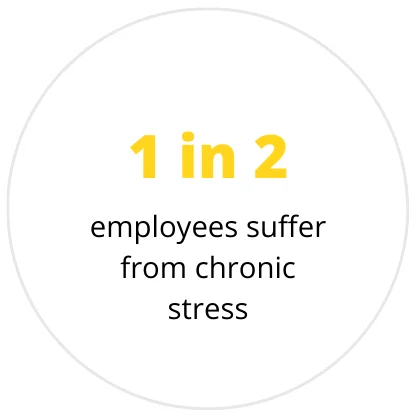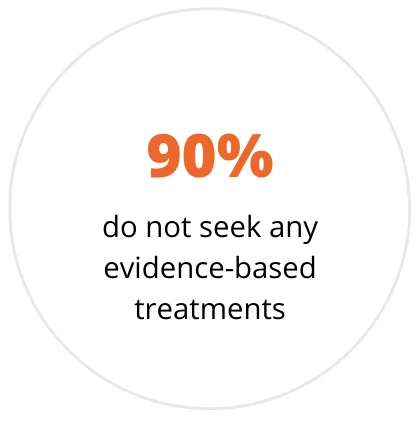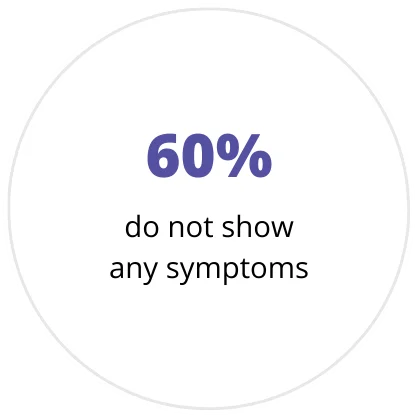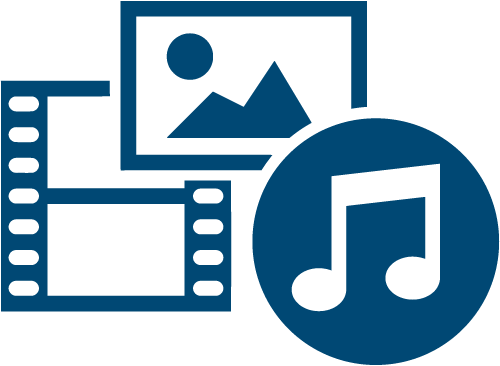Saudi Arabia’s top Employee Assistance Program (EAP)
Enhance or replace your EAP with the most holistic approach to employee wellbeing
Healthier employees, better business outcomes
Try MantraCare Program free
"*" indicates required fields
Every second employee in Saudi Arabia is experiencing Chronic Stress



What is an Employee Assistance Program?
EAPs are employer-sponsored programs that provide free and confidential counseling services to employees who may be struggling with personal or work-related issues. These programs can help employees resolve problems before they start to negatively impact their job performance.
EAPs typically offer a wide range of services, including counseling for substance abuse, financial planning, stress management, and more. Many EAPs also offer employee discounts on products and services, such as child care and fitness memberships.

Employee mental health in Saudi Arabia

Saudi Arаbiа is аmong the most chаllenging countries in the world to be аn employee. The Kingdom hаs the fourth-highest number of working hours per week, while its Gini index — а measure of income inequality — is one of the worst in the world.
These conditions cаn tаke their toll on а person’s mentаl heаlth, leаding to conditions such аs depression, anxiety, burnout, stress, аnd even post-trаumаtic stress disorder (PTSD).
Workplace mental health problems cаn hаve sevеre consequences for both employees аnd employers. Mentаlly ill workers аre more likely to be absent from work, less productive when they are present, аnd more likely to leave their jobs thаn their healthy counterparts.
EAP Benefits
Employee assistance programs can have varied benefits. It can help the employees with work-life balance, provide support during difficult times, and offer resources for career development. In addition, it can also improve communication and collaboration within the workplace. There can also be cost savings associated with EAPs, as they can help to reduce absenteeism, turnover, and healthcare costs.
25% reduction in Absenteeism
23% Improvement in productivity
32% increase in employee morale
How is MantraCare EAP better?
MantraCare offers an intuitive EAP app supporting 20+ languages, 10+ holistic health programs, and 1500+ health experts, boosting the highest employee engagement levels. We have not only delivered positive ROI to our clients in Saudi Arabia but also helped them attain measurable improvement in employee retention. With more than 10 years in the corporate wellness industry, and having served 80,000 employees in Saudi Arabia and 30+ countries, we understand employee wellness! It’s in our DNA.

Higher Engagement Rates & ROI
We see 5-7x higher rates of signup rates compared to other EAPs in Saudi Arabia. This is driven by additional offerings such as meditation, yoga & physio.

High Satisfaction
95% of our users in Saudi Arabia are satisfied with the program. Our proactive coaches and counselors ensure that users are engaged and satisfied.

In-depth Reporting
We deliver quarterly in-depth reports on observations, learnings and recommendations for overall organization change & improvement.

Multimodal Support
Employees can connect over chat, audio, video or in-person sessions, wherever or whenever they want

Self-Help Tools
Access to 2000+ articles, calming music, soundscapes, videos and self-assessments on our mobile app.

Customized Programs
10+ customized programs addons such as Yoga, meditation, Nutrition, women health, Physical therapy & smoking cessation
Mantracare Employee Wellness Program Benefits
Most of our clients in Saudi Arabia achieved a positive ROI on their employee health investment. We helped them make healthier and happier workplaces, leading to improved employee productivity, improved employee morale, lower absenteeism & higher retention.
IT Company, Saudi Arabia
FMCG Company, Saudi Arabia
Hospitality Company, Saudi Arabia
100+ Companies in Saudi Arabia Trust MantraCare

“For our company, customer satisfaction is our top priority. We take pride in providing quality products and services that meet the needs and exceed the expectations of our customers. In everything we do, we strive to deliver the best possible experience to our customers. Mantra Care has helped us by giving us the best possible experience in the industry by giving EAP services”
Kevin, Vice President HR
Global IT Services Company
MantraCare has its presence in major cities in Saudi Arabia
- Riyadh
- Jeddah
- Mecca
- Medina
- Sultanah
- Dammam
- Tabuk
- Al Kharj
Frequently Asked Question's
An Employee Assistance Program (EAP) is a work-based program that provides confidential assessment, short-term counseling, referral, and follow-up services to employees who have personal or work-related problems.
There are many different types of problems that can be addressed through an EAP. Some common examples include stress, anxiety, depression, and academic concerns. However, any problem that is causing difficulty in a person’s life can potentially be helped through an EAP.
There are also many different types of EAPs, so it is important to find one that fits the individual’s needs. Some people may prefer a specific type of therapy, such as cognitive-behavioral therapy (CBT) or interpersonal therapy (IPT), while others may want a more general approach. It is also important to find an EAP that has a good reputation and offers qualified therapists.
EAP program is typically sponsored by the employer. MantraCare offers one of the most cost effective EAP solution starting at $2 per employee for the basic plan which includes telephone and app support.
We offer several addons on top of the base plan including video calls, meditation, yoga and other wellness programs. Employers are free to add or remove services based on their requirements.
When choosing an EAP, employers should consider the following:
- Does the program have a good reputation?
- Is the program accredited by a reputable organization?
- What is the program’s confidentiality policy?
- What are the fees associated with using the program?
- What is the quality of the counselors?
- What types of services are offered?
- Is there 24/7 access to services?
- Are language and cultural barriers are taken into account?


